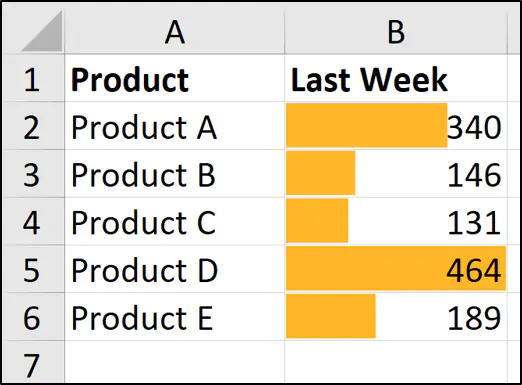Mastering Excel: Create Google Sheets in Minutes

Introduction to Creating Google Sheets with Excel

In today's fast-paced business environment, efficiency and integration are key to staying competitive. One of the ways to achieve this is by combining the robust data manipulation features of Microsoft Excel with the collaborative, cloud-based capabilities of Google Sheets. Whether you're a data analyst, a small business owner, or just someone looking to streamline your workflow, mastering how to create Google Sheets from Excel can significantly enhance your productivity. In this comprehensive guide, we'll walk through the process, provide practical examples, and highlight the benefits and considerations of this transition.
Why Convert Excel to Google Sheets?

Before diving into the "how," let's first address the "why." Here are some compelling reasons to consider:
- Collaboration: Google Sheets allows multiple users to work on a document simultaneously, with changes reflected in real-time.
- Cloud Access: No need to worry about where your Excel file is located; with Google Sheets, you have access from any device with internet connectivity.
- Automatic Version History: Sheets retains versions of your document, making it easy to track changes or revert to previous iterations.
- Integrated Tools: Google's ecosystem (Drive, Forms, etc.) integrates seamlessly with Sheets, enhancing document management and data collection.
- Compatibility: With Google Sheets, you can still edit and open Excel files, ensuring no loss in compatibility.
Steps to Convert Excel to Google Sheets

1. Preparation

Before you begin the conversion:
- Ensure your Excel file is free from any macros or complex VBA code that might not transfer to Google Sheets.
- Review any conditional formatting or formulas for compatibility with Google Sheets.
- Remove or update any external links or references in the Excel document.
2. Uploading to Google Drive

Here's how to get your Excel file onto Google Drive:
- Navigate to Google Drive and log in to your Google account.
- Click the "+ New" button on the top left, then select "File upload."
- Choose your Excel file from your computer and upload it.
3. Converting to Google Sheets

Once the file is uploaded:
- Locate the file in your Google Drive.
- Right-click on the file and select "Open with," then choose "Google Sheets."
- The file will open in Google Sheets. You'll be prompted to decide whether to keep it as an Excel file or save a copy as a Google Sheets file. Choose "Save as Google Sheets" to convert it permanently.
4. Data Verification

After conversion, verify your data:
- Check the formatting and make sure it's been retained or adjusted as needed.
- Test formulas and functions for accuracy; some might not translate directly.
- Ensure any tables or charts are present and formatted correctly.
Handling Complex Features

Some Excel features require special attention:
Macros
⚠️ Note: Macros do not convert directly into Google Sheets. Instead, you'll need to recreate them using Google Apps Script.
Data Validation
Data validation can transfer, but it’s worth checking if complex rules have been preserved or need adjustment in Google Sheets.
Advanced Formulas
While many Excel formulas are compatible, some might need tweaking. Here’s a table comparing common formulas:
| Excel Formula | Google Sheets Equivalent |
|---|---|
| IFERROR | IFERROR |
| VLOOKUP | VLOOKUP, with slight differences in array formulas |
| INDEX/MATCH | INDEX/MATCH (works similarly) |
| ARRAYFORMULA | ARRAYFORMULA (Google Sheets specific) |

Benefits of the Conversion

By moving to Google Sheets, you unlock:
- Cloud-based Collaboration: Work with colleagues in real-time, no matter where they are.
- Mobile and Offline Editing: Google Sheets apps on iOS and Android allow for editing on the go, and offline access can be set up for times when you're without internet.
- Integration: Google Sheets integrates with other Google services like Drive, Forms, and Analytics, creating a seamless workflow.
- Auto-Save and Version Control: Never lose your work again, and easily access previous versions of your document.
Limitations and Considerations

While the transition has many benefits, consider these limitations:
- Macro Dependency: If your Excel file relies heavily on macros, you'll need to recreate them in Google Apps Script.
- Feature Availability: Some advanced Excel features might not have a direct counterpart or might function differently in Google Sheets.
- Customization: Excel offers more in terms of UI customization than Google Sheets.
Wrapping Up

In summary, converting an Excel file to Google Sheets can open up a world of possibilities for collaboration, accessibility, and integration with other online tools. The process, while straightforward, requires attention to detail to ensure data integrity and functionality. By understanding the steps, potential issues, and the advantages Google Sheets offers over Excel, you can make an informed decision about moving your data to the cloud. Remember that despite the limitations, the convenience and real-time collaboration features make Google Sheets a compelling choice for many business and personal uses.
What happens to my Excel macros when I convert to Google Sheets?

+
Excel macros are not directly transferable to Google Sheets. You’ll need to rewrite them using Google Apps Script, which offers a similar but distinct scripting language tailored for Google’s ecosystem.
Can I still open my Google Sheets in Excel?

+
Yes, Google Sheets can be downloaded as an Excel file, maintaining most formatting and functions. However, complex formulas or functions might not translate perfectly.
Is offline access available in Google Sheets?

+
Google Sheets provides offline access if you set it up via Google Chrome and enable offline access in Google Drive settings. This lets you work on your documents without internet, syncing when connectivity resumes.